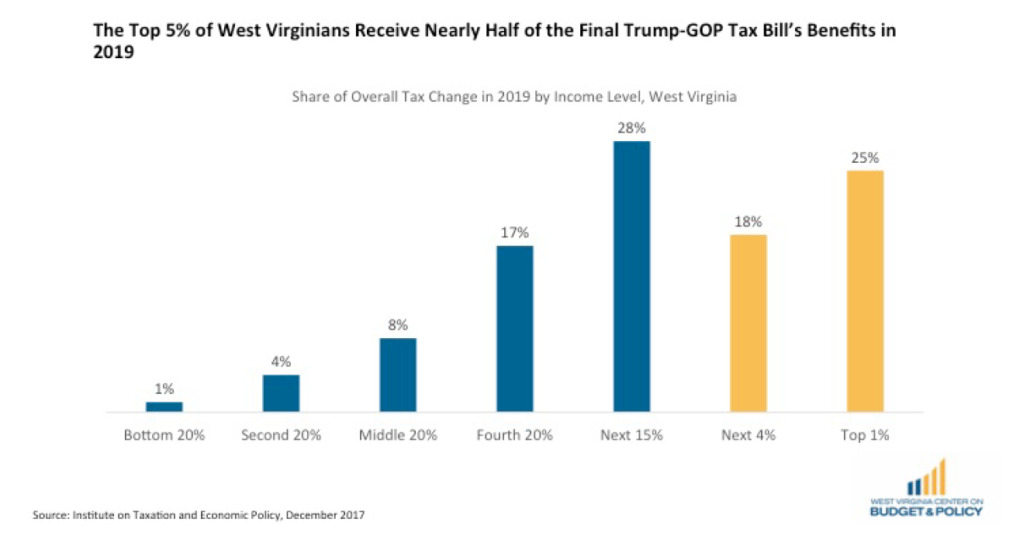Death By A Thousand Cuts
The West Virginia Legislature began its main 2019 session on January, 9, 2019. All bills introduced in 2018 that were not then acted upon were re-introduced on the first day of this session. New legislative proposals have also been introduced early in this session. A review of both categories introduced in the House and Senate shows that there are several serious attempts to deal with the state’s problems.
But it also shows that many legislators are in love with tax exemptions and credits, which benefit one class of taxpayer and disadvantage everyone else. Sometimes these proposals have merit, but taken cumulatively they show the Legislature’s willingness to bleed our government of the revenue required for it to function effectively, drop by drop.
Legislators from both parties have proposed tax exemptions or credits, although Republicans have done so by a margin of roughly three to one. Here are some of the many proposals:
- To exempt law enforcement officers from the payment of personal property tax (HB 2075);
- To reduce the federal adjusted gross income figure used in West Virginia tax calculations for volunteer fire department and rescue squad members (HB 2208);
- To exempt firefighters and volunteer firefighters from the payment of income tax, and real and personal property taxes (HB 2403)
- To permit honorably discharged veterans to hunt, trap and fish without a license (HB 2030);
- To exempt all motor vehicles from personal property tax (HB 2094);
- To exempt the pension benefits of Department of Natural Resources police officers from state income tax (SB 12);
- To exempt income earned by primary and secondary school teachers from personal income tax (HB 2370); and
- To establish an income tax credit for practicing physicians who locate to West Virginia (SB 80).
For the last several years, this state has struggled with large budget deficits created because in earlier periods, when coal severance revenues were high, we reduced or eliminated other taxes. Among these were the business franchise tax and a reduction in the corporate income tax. Then the coal market, as it always does, went bust. We are now again operating with a surplus from an improved coal market and revenues from gas pipeline construction. But these sources of revenue are not permanent. Tax exemptions and credits, on the other hand, often become permanent.
Effective government costs money. Nobody likes paying taxes, but many of us like even less the failure of our government to create a successful, modern state that we don’t have to apologize for. Jim Justice is right about one thing – we are all tired of being 50th. Yet our tax choices don’t reflect an understanding of how to change this.
I am certain that cogent supporting arguments can be made by the legislative sponsors of each of the proposed exemptions and credits mentioned above. And it is difficult for opponents to argue that, say, school teachers aren’t worthy of tax relief. That sort of debate, though, is limited to the worthiness of the constituency to be favored.
What is missing is an analysis of the opportunity cost of granting exemptions and credits. What more important thing would we be able to do with the money we propose to confer on teachers or DNR police officers? There is very little of this analysis in the Legislature beyond the legislative fiscal notes, which are little more than a bookkeeping of what a proposal might cost. These fiscal notes are routinely ignored. You can be sure, however, that every nick in the general revenue fund created by a tax exemption or credit is ultimately felt somewhere else in the budgetary process.
This is not to say that tax exemptions and credits can’t be useful in achieving important policy goals, so long as they rationally fit those goals and are not one-off gifts to a particular constituency. Some of the recent legislative proposals fit well and seem worthy of enactment. For example, a refundable state earned income tax credit of 50% of the existing federal earned income credit. (HB 2108). This credit would further supplement the incomes of low and moderate income working adults. Doing that would increase the attractiveness of work and reduce the need for other public benefits like food stamps.
The idea of raising taxes is like the third rail in West Virginia politics. Nobody in the Legislature wants to touch it for fear of being punished by voters. But maybe we can be more careful about “spending” the revenues we do have on tax benefits for narrow constituencies. One way to do this is to resist the temptation to open any more small fiscal wounds in the body politic for the sake of momentary political benefit.
Going through all the bills that have been introduced in the Legislature so far, I came upon another idea. In each of the last two sessions, a bill has been introduced in the Senate proposing a five year sunset period for all tax credits in the Code (SB 23 and SB 48). Now that is a breath of fresh air.

